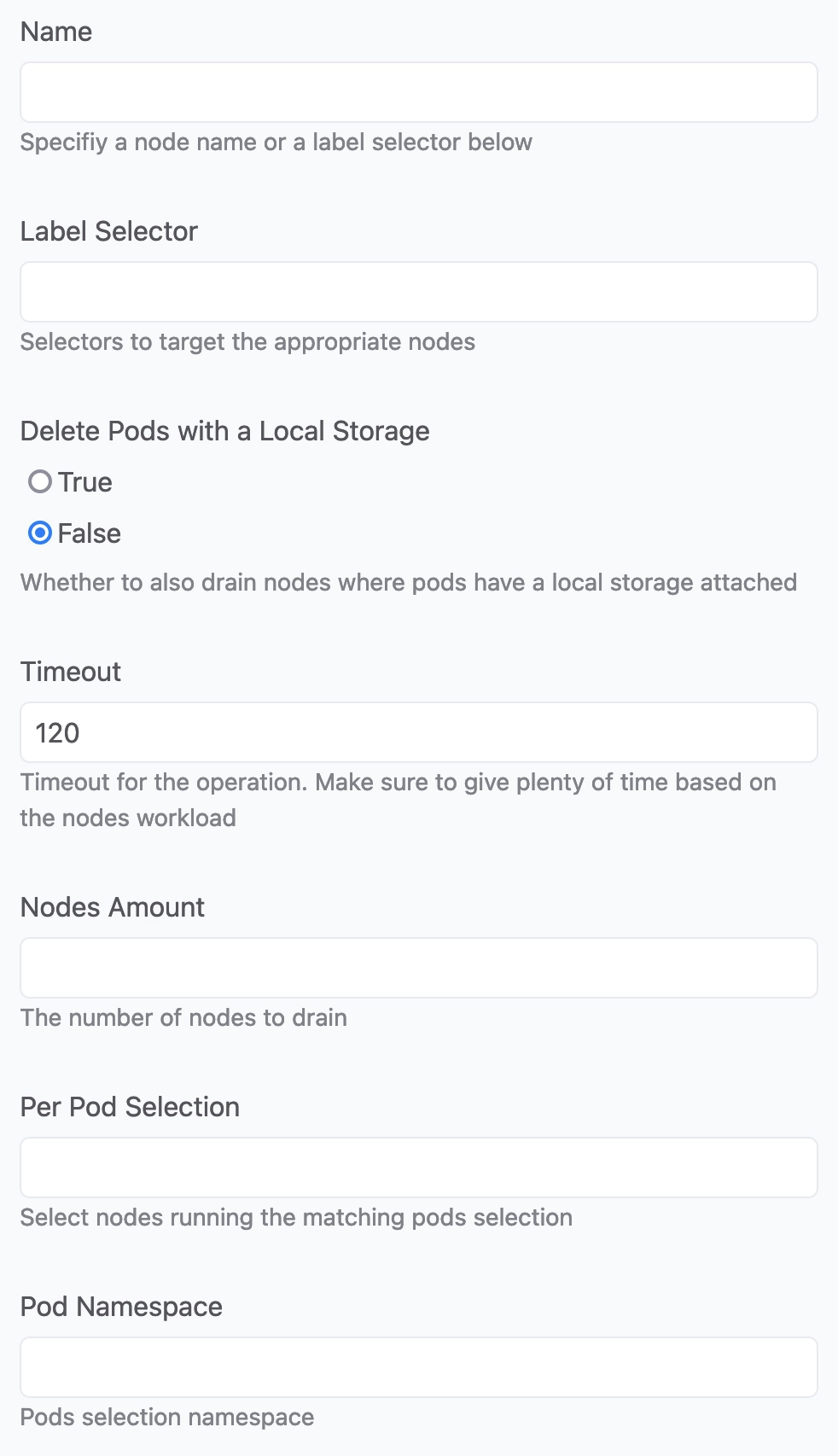Kubernetes
cordon_node
Cordon nodes matching the given label or name, so that no pods are scheduled on them any longer
Drain nodes matching the given label or name, so that no pods are scheduled on them any longer and running pods are evicted

Below are the details and signature of the activity Python module.
| Type | action |
| Module | chaosk8s.node.actions |
| Name | drain_nodes |
| Return | boolean |
Usage
JSON
{
"name": "drain-nodes",
"type": "action",
"provider": {
"type": "python",
"module": "chaosk8s.node.actions",
"func": "drain_nodes"
}
}YAML
name: drain-nodes
provider:
func: drain_nodes
module: chaosk8s.node.actions
type: python
type: actionArguments
| Name | Type | Default | Required | Title | Description |
|---|---|---|---|---|---|
| name | string | No | Name | Specifiy a node name or a label selector below | |
| label_selector | string | null | No | Label Selector | Selectors to target the appropriate nodes |
| delete_pods_with_local_storage | boolean | false | No | Delete Pods with a Local Storage | Whether to also drain nodes where pods have a local storage attached |
| timeout | integer | 120 | No | Timeout | Timeout for the operation. Make sure to give plenty of time based on the nodes workload |
| count | integer | null | No | Nodes Amount | The number of nodes to drain |
| pod_label_selector | string | null | No | Per Pod Selection | Select nodes running the matching pods selection |
| pod_namespace | string | null | No | Pod Namespace | Pods selection namespace |
This action does a similar job to kubectl drain --ignore-daemonsets or kubectl drain --delete-local-data --ignore-daemonsets if delete_pods_with_local_storage is set to True. There is no equivalent to the kubectl drain --force flag.
You probably want to call uncordon from in your experiment’s rollbacks.
Signature
def drain_nodes(name: str = None,
label_selector: str = None,
delete_pods_with_local_storage: bool = False,
timeout: int = 120,
secrets: Dict[str, Dict[str, str]] = None,
count: int = None,
pod_label_selector: str = None,
pod_namespace: str = None) -> bool:
pass